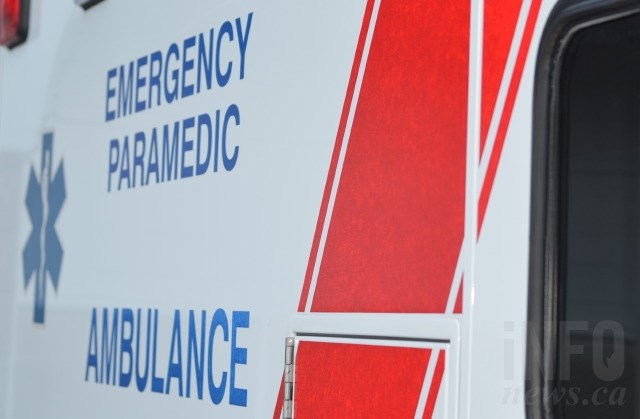
B.C. Ambulance/ FILE PHOTO
(CHARLOTTE HELSTON / iNFOnews.ca)
March 02, 2016 - 8:00 PM
SPATE OF OVERDOSES IN JANUARY NOT MUCH OUT OF THE ORDINARY TODAY, BUT UP MARKEDLY OVER THE LAST FEW YEARS
THOMPSON-OKANAGAN - A low-key bulletin warning of increasing overdose deaths within the Interior Health Authority isn’t pointing to any particular surge in the numbers, just an overall upward trend in the last few months and, indeed, years.
Senior medical health officer Trevor Corneil says a more pointed alert would have been issued if there was a sudden cluster of overdose deaths in a particular area which could point to a bad batch of drugs.
While the bulletin cites the B.C. Coroners Service report on overdose deaths for 2015, Corneil says the latest unconfirmed reports show 15 overdose deaths across the health authority’s service area in January. The number is a bit high, Corneil says, but not particularly out of the ordinary month to month, unless it were to continue at that rate.
“You can draw a straight line from 2008 when there was 20 confirmed overdose deaths in Interior Health to last year when there was 60. There has been a general increase of deaths related to illicit substances for a couple of years now,” Corneil says. “It is beginning to happen every two to six weeks, which is consistent with that upward trend.”
Corneil says illicit drug use is different in communties outside Vancouver, more spread out and in that the powerful opiod fentanyl, involved in more than 30 per cent of B.C. overdose deaths last year, has destabilized drug users and the drug market throughout the province.
“It can take years before people sort out how a certain substance can and should be used,” he says.
Corneil says the time was ripe, with recent media coverage of overdose and overdose deaths, to acknowledge the trend and spread the word of the dangers posed by fentanyl.
“We need to start having that discussion, we need to start the conversation around harm reduction,” Corneil adds. “It’s not just homeles people affected by this. Everyone seems to know someone who was impacted by overdose or is familiar with a person who has overdosed. I think the public is ready to hear about this where there was not such an appetite before."
For more stories on fentanyl and overdose concerns, click here.
To contact a reporter for this story, email John McDonald at jmcdonald@infonews.ca or call 250-808-0143. To contact the editor, email mjones@infonews.ca or call 250-718-2724.
News from © iNFOnews, 2016